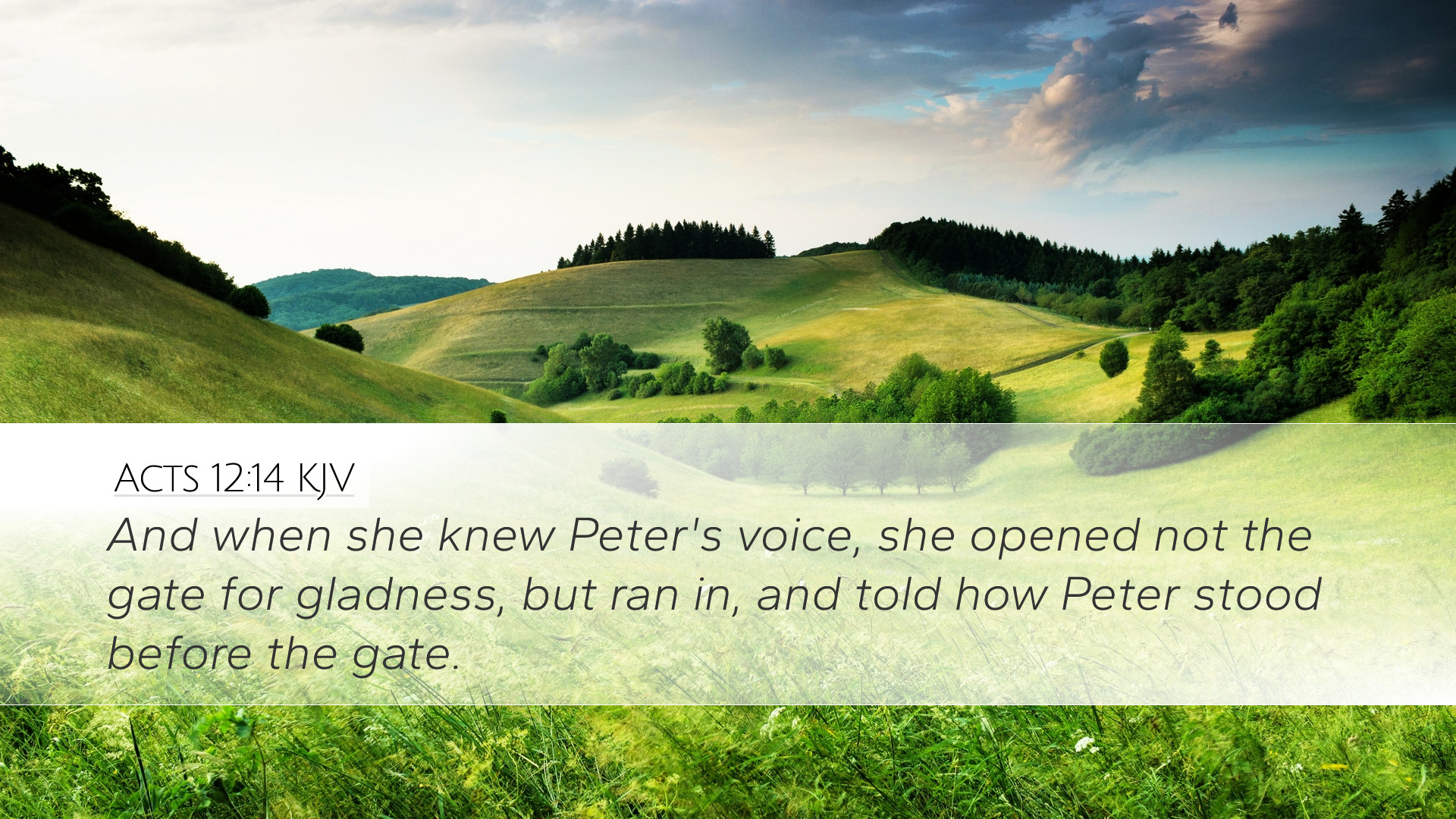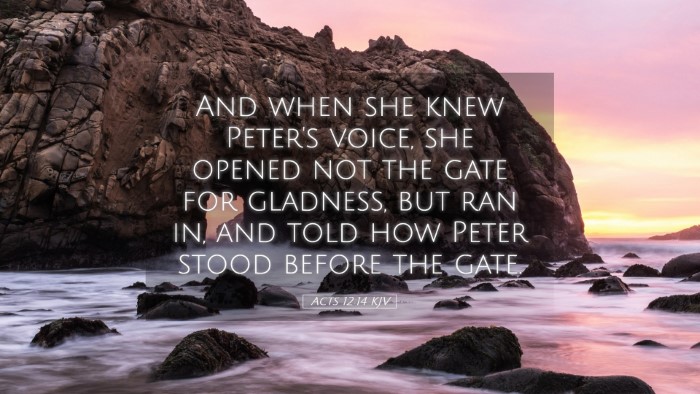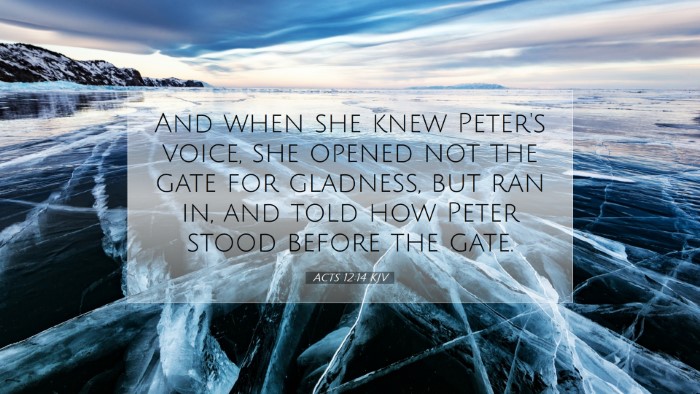Old Testament
Genesis Exodus Leviticus Numbers Deuteronomy Joshua Judges Ruth 1 Samuel 2 Samuel 1 Kings 2 Kings 1 Chronicles 2 Chronicles Ezra Nehemiah Esther Job Psalms Proverbs Ecclesiastes Song of Solomon Isaiah Jeremiah Lamentations Ezekiel Daniel Hosea Joel Amos Obadiah Jonah Micah Nahum Habakkuk Zephaniah Haggai Zechariah MalachiActs 12:14
Acts 12:14 KJV
And when she knew Peter's voice, she opened not the gate for gladness, but ran in, and told how Peter stood before the gate.
Acts 12:14 Bible Commentary
Commentary on Acts 12:14
Verse Overview
Acts 12:14 records a poignant moment in the early church, showcasing the faith and incredulity of believers in response to miraculous events. The verse reads: "When she recognized Peter's voice, she opened not the gate for gladness, but ran in and told how Peter stood before the gate." This account highlights key themes of faith, community, and divine intervention.
Contextual Background
The twelfth chapter of Acts presents a critical point in the apostolic mission, illustrating persecution and divine rescue. The backdrop involves King Herod's aggressive actions against the church, leading to serious implications for Peter and other believers. This context enriches our understanding of the unfolding events.
Commentary Insights
Matthew Henry's Commentary
Henry emphasizes the significance of the miracle leading to Peter’s escape, observing that it underscores God's sovereignty over earthly rulers. He notes the reaction of Rhoda, who, despite recognizing Peter’s voice, exhibits disbelief due to overwhelming joy and astonishment. This reflects the human inclination to doubt the extraordinary even when witnessed firsthand.
Albert Barnes' Notes
Barnes points out the role of Rhoda as an emblem of the church's initial response to divine acts. Her failure to open the door represents the broader hesitations and doubts that can pervade faith communities. He elaborates on the importance of vigilance and readiness to receive divine workings with certainty and expectation, rather than disbelief. Furthermore, he underscores the necessity of prayer within the congregation, as it was their prayers that preceded Peter's miraculous release.
Adam Clarke's Commentaries
Clarke provides a deeper exploration of the emotional and psychological dimensions of the scene. He draws attention to Rhoda's reaction as a demonstration of human spontaneity when confronted with the miraculous. Moreover, Clarke highlights the cultural implications of hospitality in the ancient context, where allowing entrance to a visitor would have been common courtesy. The juxtaposition of joy and fear in this moment illustrates the complex response of humanity in the face of divine intervention.
Spiritual Principles
- Faith Amidst Doubt: The reaction of Rhoda is indicative of the struggle believers face in reconciling faith with skepticism. This presents a challenge for Christians to embrace divine possibilities even when they seem far-fetched.
- The Power of Prayer: This passage reiterates the belief in the efficacy of collective prayer. The early church’s prayers contributed to Peter’s release, teaching that the faithful community plays a vital role in enacting God’s will on earth.
- God's Sovereignty: The events highlight that God remains in control, even amidst persecution and despair. This truth provides comfort and reassurance for individuals facing their own struggles.
Applications for Modern Believers
Encouragement in Trials
For contemporary Christians, Acts 12:14 serves as a reminder that trials can lead to divine deliverance. This narrative encourages faith anchored in God’s promises, enabling believers to stand firm against adversities.
Welcoming the Unexpected
The church today is called to welcome and respond to God’s interventions, be they in personal lives or communal settings. This involves a disposition of openness, ready to accept the unexpected workings of God.
Community and Support
Understanding the significance of community is vital; believers are reminded that faith is not just an individual pursuit. The collective prayer of the church can be a powerful means of support and deliverance.
Conclusion
Acts 12:14 beautifully portrays the interplay between faith, community, and the miraculous workings of God. By reflecting on insights from public domain commentaries, modern readers can draw profound lessons relevant to their spiritual walk. The text challenges believers to cultivate an expectant faith, rooted in the knowledge of God’s absolute control and willingness to intervene in human affairs.


